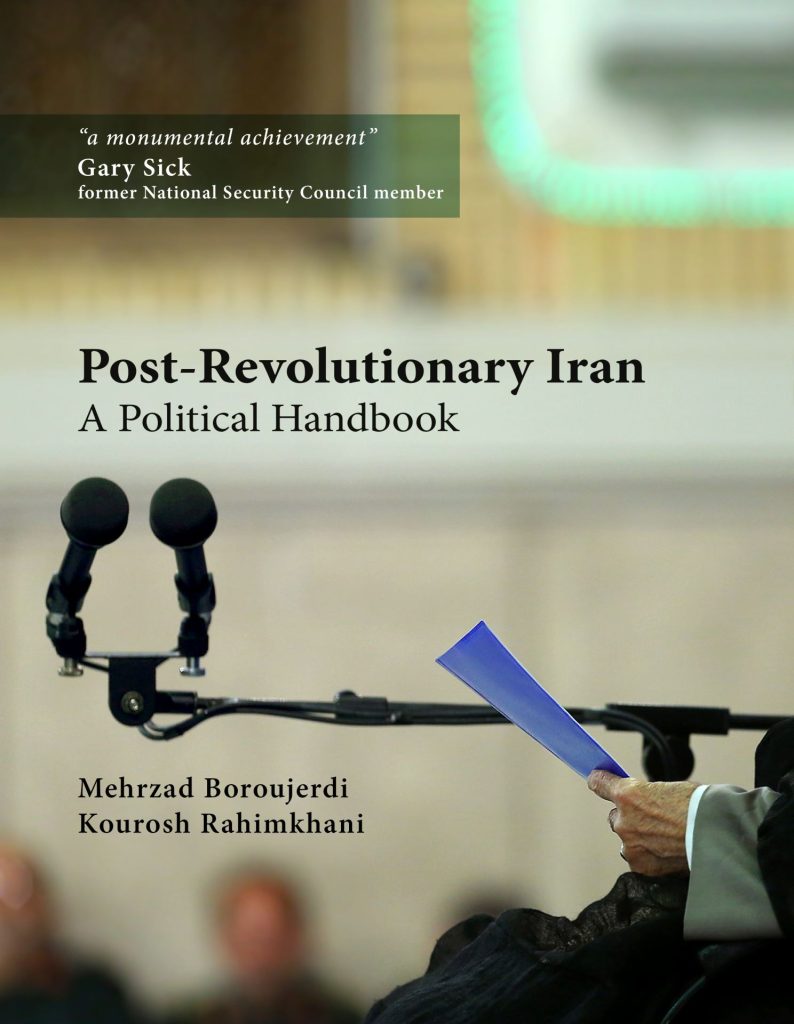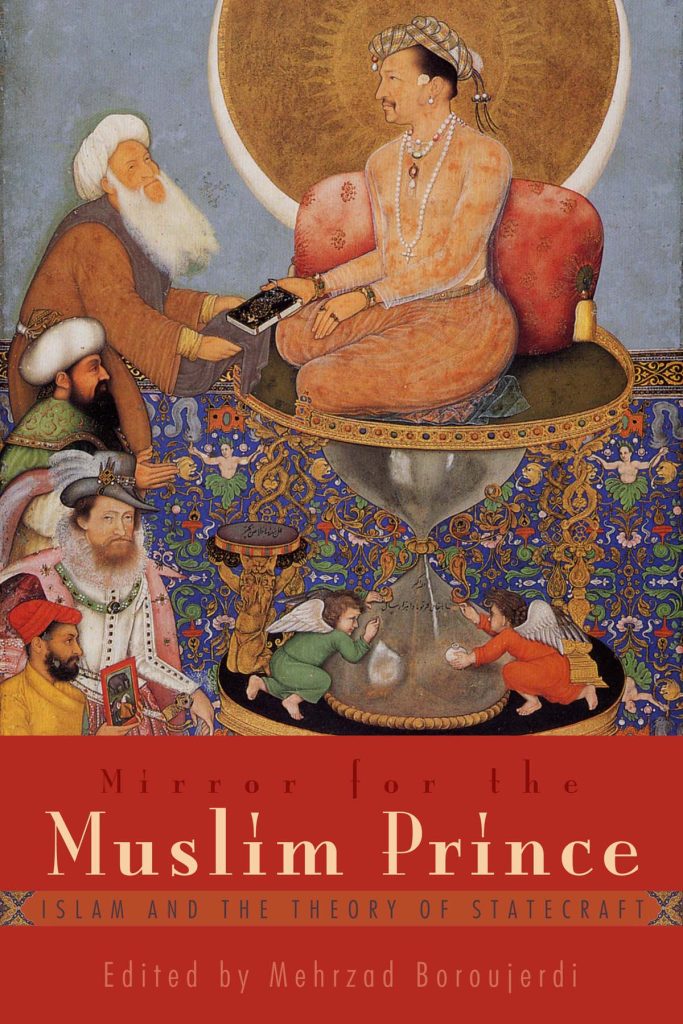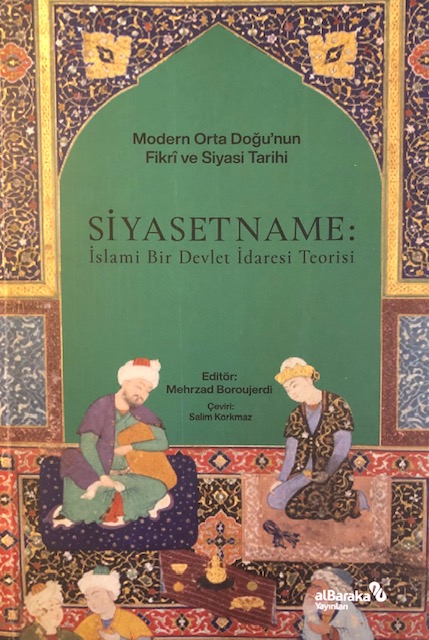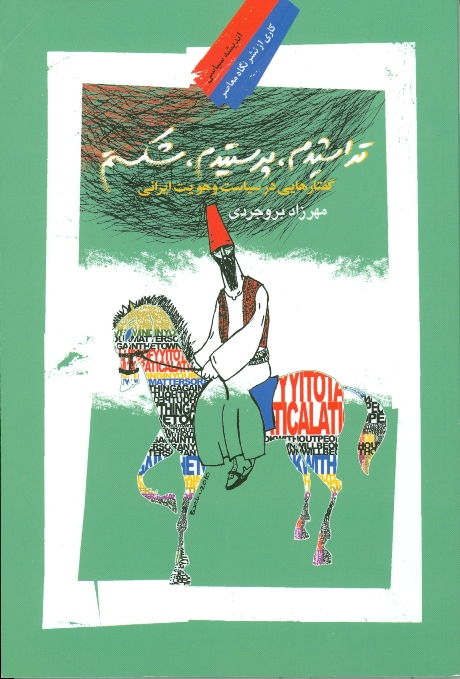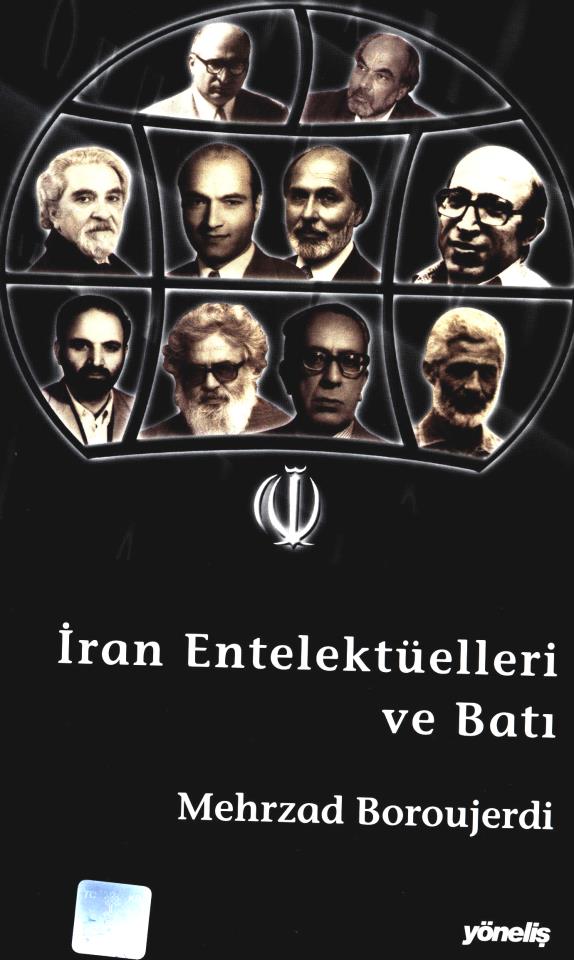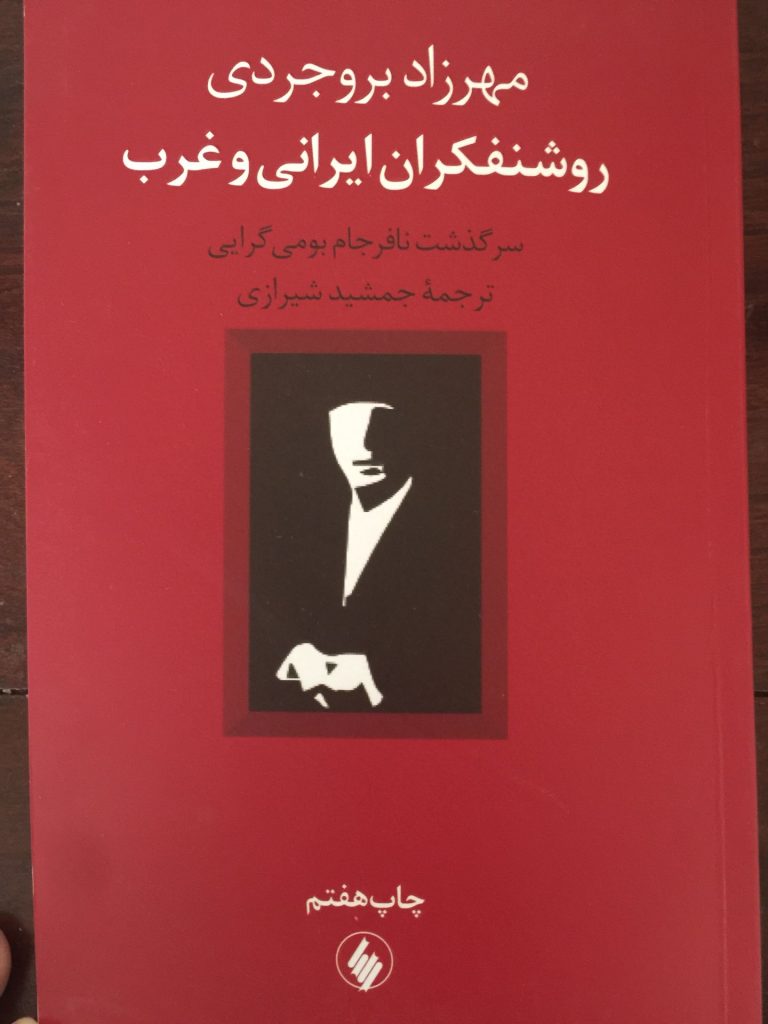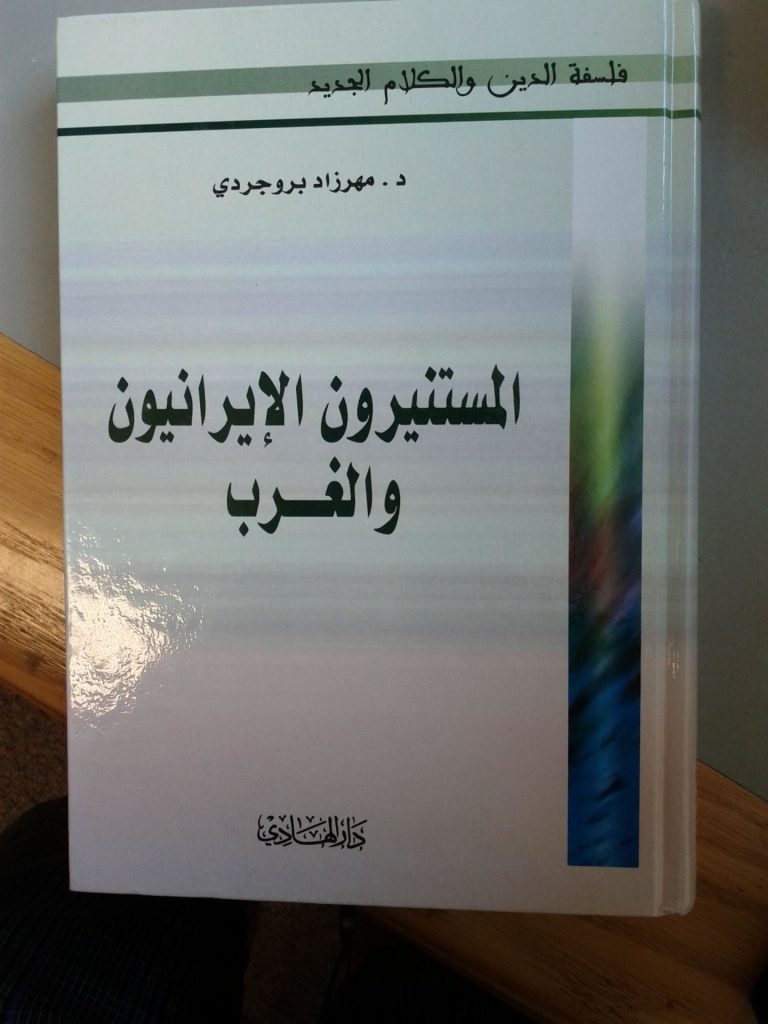Click on the categories below to expand:
Books
Post-revolutionary Iran: A Political Handbook (Syracuse University Press, 2018)
This 853-page political encyclopedia provides the most comprehensive collection of data on political life in post-revolutionary Iran, including biographical sketches of more than 2,300 political personalities. It also provides an extensive chronology, coverage of 36 national elections, information on more than 400 legal and outlawed political organizations, and family ties among the elite. This book was the subject of a book review forum with five contributions in Iranian Studies 53, nos. 3-4 (May-August 2020), pp. 675-684. It was also reviewed in Choice (February 2019), Middle East Quarterly (Spring 2019), Arab Weekly (June 2018), and Middle East Librarians Association (April 2019).
(ed.),Mirror for the Muslim Prince: Islam and Theory of Statecraft (Syracuse University Press, 2013; paperback edition 2017)
For this edited volume, I assembled a group of distinguished scholars to reinterpret concepts and canons of Islamic thinking in Arab, Persian, South Asian, and Turkish traditions. The book maintains that there is no unitary “Islamic” position on important issues of statecraft and governance. My own contribution included a single-authored introduction, and an original co-written chapter, “On Sa`di’s Treatise on Advice to the Kings.” The Turkish edition (Siyasetname: İslami Bir Devlet İdaresi Teorisi) was translated by Salim Korkmaz (Istanbul: al-Baraka, 2021).
Tarashidam, Parastidam, Shikastam: Guftarhay-i dar Siyasat va Huvyiyat-i Irani [I Carved, Worshiped and Shattered: Essays on Iranian Politics and Identity] (Tehran: Nashr-e Negah-e Mo`aser, 2010)
This book encompasses a collection of 18 of my Persian-language essays that explore Iran’s intellectual history in the interwar period (1919-1939) and the post-1979 era. It was reviewed in Iranian Studies.
Iranian Intellectuals and the West: Tormented Triumph of Nativism (Syracuse University Press, 1996)
This book examined the works of ten thinkers seminal in defining modern Iranian identity. It was reviewed in American Political Science Review, Annals of the American Academy of Political and Social Science, Contemporary Sociology, Foreign Affairs, International History Review, International Journal of Middle East Studies, International Migration Review, Iranian Studies, Islamic Studies, Middle East Journal, Middle East Studies Association Bulletin, Middle Eastern Studies, Midwest Book Review.
Persian edition (Rawshanfikran-i Irani va gharb) (Tehran: Farzan-e-Rooz, 1998). 1st and 2nd edition), 1998; 3rd edition, 1999; 4th edition, 2005; 5th edition, 2009; 6th edition 2013; 7th edition, 2017
Turkish edition (Iran Entelektuelleri ve Bati) (Istanbul: Yöneliş, 2002)
Arabic edition (al-Mustanirun al-Iraniyun wa-al-Gharb) (Beirut: Dar al-Hadi, 2007)

Articles
- “The Unfolding of Unreason: Javad Tabatabai’s Idea of Political Decline in Iran,” with Alireza Shomali, Iranian Studies 48 (6), 2015: 949-965.
- “Bet on the Optimists: Prospects for Reform,” Foreign Service Journal, June 2007: 26-31.
- “Iranian Nuclear Miasma,” with Todd Fine (graduate student), Syracuse Law Review 57 (3), 2007: 619-635.
- “‘The West’ in the Eyes of the Iranian Intellectuals of the Interwar Years (1919-1939),” Comparative Studies of South Asia, Africa and the Middle East 26 (3), 2006: 391-401.
- “Contesting Nationalist Constructions of Iranian Identity,” Critique: Journal for Critical Studies of the Middle East 12, Spring 1998: 43-55.
- “Challenges to the Gulf Cooperation Council States and Their Northern Neighbors: An Integrated View of Empirical Indicators,” with Haleh Vaziri, Iranian Journal of International Affairs 10 (1-2), Spring/Summer 1998: 36-71.
- “Khatami’s Election: Implications for Iranian Politics,” The Middle East Economic Survey 40 (31), August 4, 1997: D3-D5. Reprinted in John Calabrese, ed., Iran’s Elections: Implications for U.S. Policy, pp. 5-7 (Middle East Institute, 1997).
- “Iranian Islam and the Faustian Bargain of Western Modernity,” Journal of Peace Research 34 (1), February 1997: 1-5.
- “Iran’s Intellectual Panorama.” Bulletin of the Center for Iranian Research and Analysis 11 (3), Spring 1996: 22-24.
- “Rethinking the Third World,” with Ali Mirsepassi, International Third World Studies Journal and Review 5 (1), 1993: 51-58.
Book Chapters
- “Rethinking the Legacy of Intellectual-Statesmen in Iran,” in Ramin Jahanbegloo, ed., Mapping the Role of Intellectuals in Iranian Modern and Contemporary History (Lexington Books, 2020), pp. 111-127. Persian translation [“Baznegariye Mirase Dowlatmardan Rowshanfekr dar Iran”] appeared in Qalamyaran, no. 23, pp. 71-75.
- “Iran,” in Ellen Lust, ed., The Middle East, 16th edition (Sage/Congressional Quarterly, 2023), pp. 443-470 [Earlier versions appeared in the 15th, 14th, 13th and 12theditions].
- The Office of the Supreme Leader: Epicenter of a Theocracy,” with Kourosh Rahimkhani (graduate student), in Daniel Brumberg and Farideh Farhi, eds., Power and Change in Iran: Politics of Contention and Conciliation, pp. 135-65(Indiana University Press, 2016).
- “On Sa`di’s Treatise on Advice to the Kings,” with Alireza Shomali, in Mehrzad Boroujerdi, ed., Mirror for the Muslim Prince: Islam and Theory of Statecraft, pp. 45-81 (Syracuse University Press, 2013).
- “Introduction,” in Mehrzad Boroujerdi, ed., Mirror for the Muslim Prince: Islam and Theory of Statecraft, pp. 1-15 (Syracuse University Press, 2013).
- Jahanbegloo, ed., Civil Society and Democracy in Iran, pp. 119-26 (Lexington Books, 2012).
- “Iran’s Power Structure,” and “Iran’s Political Elite,” with Kourosh Rahimkhani (graduate student), in Robin Wright, ed., The Iran Primer: Power, Politics and U.S. Policy, pp. 219-26 (United States Institute of Peace/Woodrow Wilson International Center for Scholars, 2010).
- “Why and What Do We Compare? The Story of Revolution and Democratization,” in College Board Advanced Placement Government and Politics: Comparative: 2005-06 Professional Development Workshop Materials, pp. 30-44 (The College Board, 2005).
- “The Reformist Movement in Iran,” in Daniel Heradstveit and Helge Hveem, eds., Oil in the Gulf: Obstacles to Democracy and Development, pp. 63-71 (Ashgate, 2004). German translation: “Die Reformbewegung in Iran,” Sowi: Das Journal fur Geschichte, Politik, Wirtschaft und Kulture, pp. 37-44 (February 2005)].
- “Triumphs and Travails of Authoritarian Modernization in Iran,” in Stephanie Cronin, ed., The Making of Modern Iran: State and Society under Riza Shah, 1921-1941, pp. 146-54 (Routledge, 2003).
- “The Paradoxes of Politics in Post-revolutionary Iran,” in John L. Esposito and R. K. Ramazani, eds., Iran at the Crossroads, pp. 13-27 (Palgrave, 2001).
- “Continuities and Discontinuities in Modern Iranian Intellectual Thought,” in Haleh Esfandiari, Andrea Bertone and Farideh Farhi, eds., Intellectual Change and the New Generation of Iranian Intellectuals, pp. 13-18 (Woodrow Wilson International Center for Scholars, 2000). Turkish translation: “Modern Iran Entelektüel Düsüncesinde Süreklilikler ve Kopuslar,” Dogudan (January-February 2008).
- “Can Islam be Secularized?” inM.R. Ghanoonparvar and Faridoun Farrokh, eds., In Transition: Essays on Culture and Identity in the Middle Eastern Society, pp. 55-64 (Texas A&M International University Press, 1994).
- “The Encounter of Post-Revolutionary Thought in Iran with Hegel, Heidegger and Popper,” in Serif Mardin, ed., Cultural Transitions in the Middle East, pp. 236-59 (E.J. Brill, 1994).
- “Gharbzadegi: The Dominant Intellectual Discourse of Pre and Post-revolutionary Iran,” in Samih K. Farsoun and Mehrdad Mashayekhi, eds., Iran: Political Culture in the Islamic Republic, pp. 30-56 (Routledge, 1992).
Book Reviews
- Discussion of The Fall of Reza Shah: The Abdication, Exile and Death of Modern Iran’s Founder by Shaul Bakhash, UCLA Center for Near Eastern Studies, virtual book review, April 4, 2022.
- Discussion of The Shadow Commander: Soleimani, the U.S., and Iran’s Global Ambitions by Arash Azizi, New York University, virtual book review, March 1, 2021.
- Review of After Khomeini: Iran Under His Successors, by Said Amir Arjomand, Iran’s Intellectual Revolution, by Mehran Kamrava, and Democracy in Modern Iran: Islam, Culture, and Political Change, by Ali Mirsepassi. Perspectives on Politics 9 (3), Sepember 2011, pp. 729-31.
- Review of Reinventing Khomeini: The Struggle for Reform in Iran, by Daniel Brumberg. American Political Science Review 96 (4), December 2002, pp. 843-44.
- Review ofBeing Modern in Iran, by Fariba Adelkhah. Journal of Iranian Research and Analysis 18 (1), April 2002, pp. 90-95.
- Review ofRevolutionary Iran: Civil Society and State in the Modernization Process, by Masoud Kamali. Middle East Studies Association Bulletin 35 (1), Summer 2001, pp. 117-18.
- Review of Reason, Freedom, and Democracy in Islam, by Abdolkarim Soroush. Middle East Journal 55 (3), Summer 2001, pp. 519-20.
- Review of Iranian Intellectuals in the 20th Century, by Ali Gheissari. Journal of Iranian Research and Analysis 16 (1), April 2000, pp. 135-36.
- Review of Secularization of Iran: A Doomed Failure? New Middle Class and the Making of Modern Iran, by Azadeh Kian-Thiebaut. Middle East Journal 54 (1), Winter 2000, pp. 126-27.
- Review of The Constitution of Iran: Politics and the State in the Islamic Republic, by Asghar Schirazi. Middle East Studies Association Bulletin 32, Winter 1998, pp. 260-1.
- Review of Iran and the Muslim World: Resistance and Revolution, by Nikki R. Keddie. Contemporary Sociology 25, September 1996, pp. 628-29.
- Review of Rethinking Middle East Politics, by Simon Bromley. International Journal of Middle East Studies 28, May 1996, pp. 259-61.
- Review of After Khomeini: New Directions in Iran’s Foreign Policy, by K. L. Afrasiabi. Middle East Journal 50, Spring 1996, pp. 274-75.
- Review of The Political History of Modern Iran: From Tribalism to Theocracy, by Mehran Kamrava. International Journal of Middle East Studies 26, May 1994, pp. 315-16.
- Review of U.S. Foreign Policy and the Shah, by Mark J. Gasiorowski, and American Presidents and the Middle East, by George Lenczowski. American Political Science Review 86, December 1992, pp. 1102-3.
- Review of Khomeini’s Forgotten Son’s: The Story of Iran’s Boy Soldiers, by Ian Brown, and The Longest War: The Iran-Iraq Military Conflict, by Dilip Hiro. Middle East Studies Association Bulletin 26, July 1992, pp. 87-89.
- Review of Iran and the International Community, by Anoushiravan Ehteshami and Manshour Varasteh. Middle East Journal 46, Spring 1992, pp. 322-23.
- Review of Islamic Fundamentalism in Egyptian Politics, by Barry Rubin. Millennium: Journal of International Studies 21, Spring 1992, pp. 130-1.
- Review of Social Origins of the Iranian Revolution, by Misagh Parsa. Iranian Studies 23, 1990, pp.112-14.
Digital Scholarship
“Sunnis in Iran: Protesting Against Decades of Discrimination and Repression,” The Washington Institute for Near East Policy (November 21, 2022).
“Who’s on Iran’s current nuclear negotiating team? Some have controversial pasts,” The Atlantic Council Blog (January 11, 2022).
“Iran’s 2021 Presidential Election,” Trends Research (June 30, 2021).
“What will Raisi’s cabinet look like? Hardline and full of war vets,” The Atlantic Council Blog (June 23, 2021).
“Rethinking US Policy Toward Iran: A Forum,” Middle East Report (May 27, 2020).
“Will Soleimani’s Killing Lead To A Wider Conflict?” Radio Farda (January 3, 2020).
“The U.S. and Iran Are Stirring a Recipe for Conflict,” US News and World Report (June 20, 2019).
“Ebrahim Raisi: Iran’s New Chief Justice and Possible Supreme Leader in Waiting,” The Atlantic Council Blog (March 11, 2019).
“Javad Zarif Returns-to a Foreign Ministry Still Out in the Cold: Iran’s Top Diplomat Vies for Authority,” Foreign Affairs (March 6, 2019).
“The Tough Truth about the Iran Protests: There’s Little We Can Do to Make Things Better, and Trump Has Squandered His Credibility,” New York Daily News (January 2, 2018).
“The Centrality of Tehran in Iranian Sociopolitical Life,” (Irvine, CA: Samuel Jordan Center for Persian Studies and Culture, University of California – Irvine) (2015), pp. 1-8.
“Seizing the Opportunity with Iran,” (with Louis Kriesberg), Syracuse University Institute for National Security and Counter-Terrorism blog (February 6, 2014)
“A Candid Discussion with Mehrzad Boroujerdi,” Foreign Policy Association (23 May 2013)
“Negotiation is Still the Best Option: Revisiting the Iranian Nuclear Issue,” with Todd Fine, Syracuse Law Review (2012).
“Khamenei Consolidates Control Amid Other Power Shifts,” United States Institute of Peace (USIP) Blog The Iran Primer (8 June 2012).
“Revolutionary Guards Soar in Parliament,” with Kourosh Rahimkhani (graduate student), USIP Blog The Iran Primer (19 September 2011).
“Iran’s New Foreign Minister: Ali Akbar Salehi,” USIP Blog The Iran Primer (31 January 2011).
Member, United States Institute of Peace-Stimson Center Iran Study Group, Engagement, Coercion, and Iran’s Nuclear Challenge: Report of a Joint Study Group on US-Iran Policy, Summer/Fall 2010.
“Violent Politics But Not yet a Revolution in Iran,” Khaleej Times [Dubai], (23 February 2010).
“Iran’s Potato Revolution,” Foreign Policy (12 May 2009).
“The Ayatollah and Ahmadinejad: Interview with Mehrzad Boroujerdi,” The Politic.org [Yale University’s Undergraduate Journal of Politics] (7 November 2008).
“Ignore Iran’s Exile Dream Merchants,” with Geneive Abdo, The Daily Star [Beirut](24 June 2008).
Member, working group drafting “Joint Experts’ Statement on Iran,” Spring and Summer 2008.
“Iran’s March 14, 2008 Majlis Elections,” Viewpoint Moderator, Middle East Institute (13 March 2008).
“The Paradoxes of Pakistan.” In The Immanent Frame: Secularism, Religion and the Public Sphere, (30 December 2007). Reprinted as “Another Moment of Truth in Pakistan,” [Syracuse] Post-Standard (6 January 2008), pp. E1, 4.
“Will Iran Agree to Talk to U.S.?” The [Syracuse] Post-Standard (10 December 2006), p. E1.
“Letter to the Editor: Story on Iranian Bomb Fanned Flames of Discord,”The [Syracuse] Post-Standard (29 April 2004), p. A17.
“Viewing Violence and Terrorism in a Larger Context.” Syracuse University Magazine 18 (4), Winter 2001-02, 42-4. Reprinted in Maxwell Perspective 12 (1), Fall 2001, 10-1.
Encyclopedia Entries
- “Mashayekhi, Mehrdad” in Encyclopædia Iranica, online edition, 2016.
- “Hizbullah in Iran,” in Oxford Encyclopedia of the Modern Islamic World, vol. 2, pp. 129-30 (Oxford University Press, 1995).
